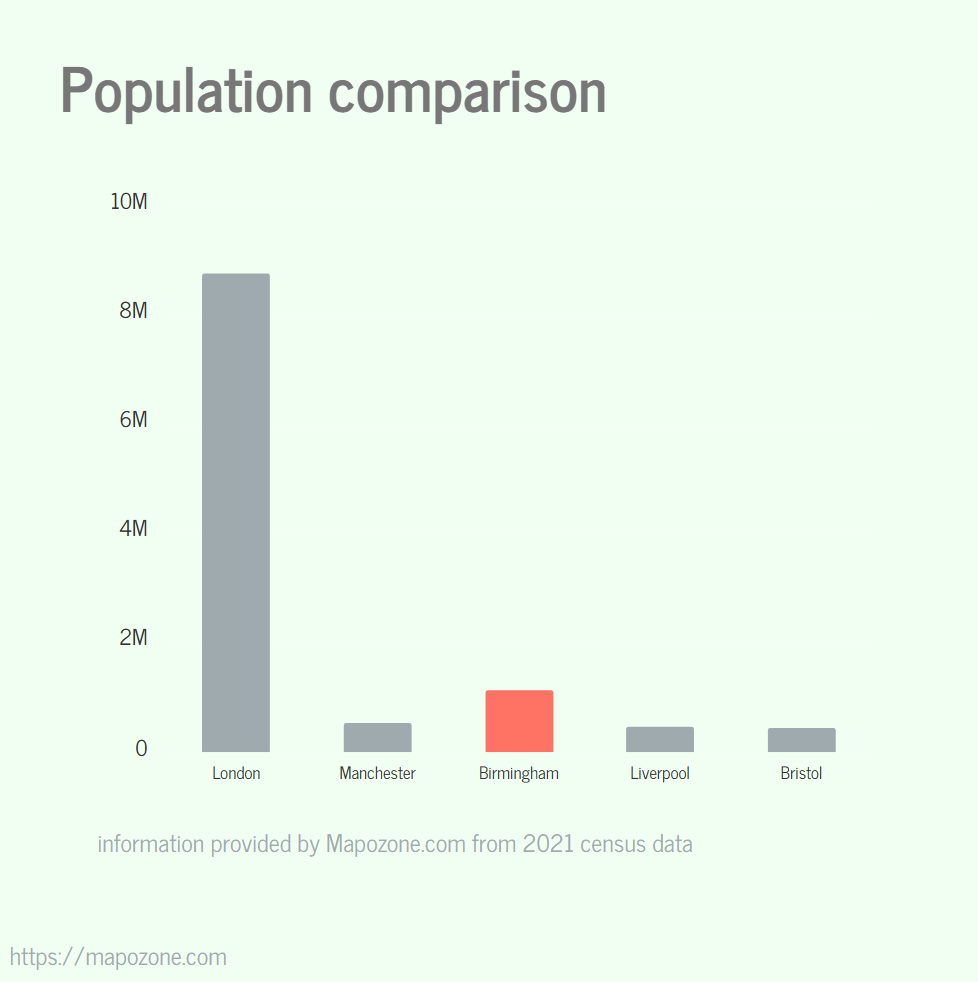

In the ever-evolving tapestry of urban life, cities serve as dynamic hubs of activity, culture, and opportunity. Birmingham, with its rich history and vibrant spirit, stands as a testament to the resilience and potential of urban centers. In this blog post, we'll delve into the latest population and income data for Birmingham in 2024, and compare it to the figures for London and Manchester, offering insights into the diverse economic fabric of these cities.
Population Snapshot
From the latest information provided by Mapozone, Birmingham is home to a population of 1,144,919. This figure reflects the city's status as one of the largest and most populous urban centers in the United Kingdom. From its industrial roots to its modern identity as a hub for commerce, culture, and innovation, Birmingham continues to attract residents from near and far, drawn by its opportunities and sense of community.
Income Data
In terms of income, Birmingham registers an average annual income of £37,065 per capita. While this figure underscores the economic activity within the city, it also prompts a closer examination of factors such as employment opportunities, industry composition, and income distribution. Birmingham's journey towards economic prosperity is undoubtedly influenced by these variables, as policymakers and stakeholders work to ensure that growth is inclusive and sustainable.
Comparative Analysis

To gain a broader perspective, let's compare Birmingham's population and income data to that of London and Manchester.
LondonAs the capital of the UK, London boasts a population of 8,799,727 residents, significantly larger than Birmingham. Moreover, London's average annual income per capita stands at an impressive £52,862.88, reflecting the city's status as a global financial center and magnet for talent and investment. However, this high income level also highlights issues of affordability and inequality that persist within the city.2.
ManchesterWith a population of 2,867,765, Manchester presents a contrast to both Birmingham and London. While smaller in population compared to London, Manchester's average annual income per capita is slightly higher at £38,239.30. This figure underscores Manchester's resilience and economic diversity, driven by sectors such as finance, technology, and healthcare. Manchester's success in attracting talent and fostering innovation has contributed to its reputation as a thriving regional hub.
Birmingham's population and income data offer a glimpse into the city's economic trajectory, highlighting both its strengths and areas for growth.- London and Manchester serve as intriguing points of comparison, showcasing different models of urban development and economic resilience.- As Birmingham continues to evolve, policymakers and stakeholders must remain vigilant in addressing challenges related to income inequality, access to opportunities, and sustainable growth.
alysis
